Auto Repair
Our Services
and stress-free as possible. See below a list of services we provide for all vehicles and trust our team to take care of your
vehicle and get you back on the road safely and confidently!
System
System
System
Conditioning
Suspension
Brakes
Brakes are one of the most essential components of a vehicle, acting as the main source of stopping power. A vehicle’s brakes experience some of the harshest conditions, so it is essential to keep them well-maintained to ensure your safety.
Over time, the components of a vehicle’s brake system will need to be replaced. Brake lines often corrode or rust after many years of exposure to adverse road and weather conditions. A vehicle’s brake pads and shoes will wear down, sometimes producing a squealing or grinding noise. Additionally, brake rotors and drums can wear down, sometimes becoming warped or damaged, requiring replacement as well. If you are experiencing any of these symptoms, it is time to schedule a comprehensive brake inspection.
A comprehensive brake inspection should be carried out regularly to ensure that the brake system is functioning properly. The inspection will check for wear and tear on brake pads and shoes, brake fluid levels, and the condition of the brake lines.
Some common brake services include, but are not limited to:
Brake inspection
Brake Fluid flush
Brake drum/shoe replacement
Brake pad and rotor replacement
Brake line repair
System
Cooling System
The cooling system works by removing heat from the engine and transferring it to the outside air. This is done by circulating antifreeze through passages within the engine block, engine heads, and the radiator located at the front of the vehicle. The radiator helps cool the engine’s antifreeze by allowing air to flow over it as the vehicle moves. The cooling system also includes a thermostat that regulates the engine’s operating temperature, a water pump that circulates the coolant through the engine and radiator, and a fan that helps cool the radiator when the vehicle is not moving.
The cooling system in a vehicle is an important part of ensuring a reliable and safe driving experience, particularly in extreme weather conditions. Regular maintenance, including checking and replacing the coolant and inspecting hoses and belts can help keep the system running smoothly and prevent costly repairs.
Electrical
A vehicle’s electrical system is responsible for providing electrical power to various components and systems within the vehicle. Proper maintenance and repair of a vehicle’s electrical system is essential for ensuring the vehicle’s safe and reliable operation.
Some common electrical services include, but are not limited to:
Battery
Alternator
Starter
Ignition switch
Wiring
Fuses and relays
Exterior and interior lighting
System
Exhaust System
The exhaust system is an important component of a vehicle that helps to regulate emissions and maintain the efficiency of the engine. The exhaust system consists of many components, including but not limited to the manifolds, headers, catalytic converter, muffler, and the piping used to connect each component.
Some common services include, but are not limited to:
Inspection
Repair
Replacement
Aftermarket upgrades
System
Fuel System
The fuel system is responsible for delivering fuel from the gas tank to the engine, where it is mixed with air and ignited to power the vehicle. Components of the fuel system include but are not limited to the fuel tank, fuel pump, fuel lines, fuel filter, and carburetor or fuel injectors. Proper maintenance of the fuel system is crucial for the optimal performance of the vehicle, as well as for fuel efficiency and reduced emissions.
Some common services include, but are not limited to:
Inspection of fuel lines for leaks or damage
Fuel line replacement or repair
Fuel filter replacement
Fuel injector cleaning or replacement
Fuel system flush
Conditioning
Heating & Air Conditioning
The heating system in a vehicle uses the engine’s coolant to warm up the passenger compartment. A heater core located inside the dashboard is responsible for transferring heat from the engine coolant into the cabin by using a blower motor to circulate air through it.
The air conditioning system in a vehicle uses a refrigerant to cool down the passenger compartment. The refrigerant flows through a series of components, including a compressor, condenser, and evaporator. As the air is cooled, a blower motor circulates the cooled air through the cabin.
Your vehicle’s heating and air conditioning are essential components in maintaining a comfortable driving experience. Regular maintenance and inspections can help keep the system running smoothly and prevent costly repairs.
Suspension
Steering & Suspension
Steering and suspension are two crucial components of a vehicle’s chassis system that work together to ensure safe and comfortable driving.
The steering system is responsible for controlling the direction of the vehicle by allowing the driver to turn the wheels. The steering system consists of several components, including but not limited to the steering wheel, steering column, steering gearbox, rack and pinion, and power steering pump. The steering system can be either manual or power-assisted, with power-assisted steering being more common in modern vehicles.
The suspension system is responsible for providing a smooth and comfortable ride by absorbing shocks and vibrations from the road and stabilizing the vehicle through turns. The suspension system consists of several components, including but not limited to springs, shocks, struts, control arms, sway bars, tie rods, and leaf springs.
Together, the steering and suspension systems work to keep the vehicle stable, prevent excessive body roll, and maintain proper alignment between the wheels and the road. Proper maintenance and regular inspections of these systems are crucial for ensuring safe and comfortable driving.
Transmission
The transmission is responsible for transmitting power from the engine to the wheels, allowing the vehicle to move. It is important to have your vehicle’s transmission system serviced regularly to help prevent problems and keep your vehicle running smoothly. If you’re experiencing any issues with your vehicle’s transmission, it is best to have it inspected and repaired by a qualified technician.
Some common transmission services include, but are not limited to:
Transmission fluid change
Transmission fluid flush
Transmission repair
Transmission replacement
System
System
System
Conditioning
Suspension
Brakes are one of the most essential components of a vehicle, acting as the main source of stopping power. A vehicle’s brakes experience some of the harshest conditions, so it is essential to keep them well-maintained to ensure your safety.
Over time, the components of a vehicle’s brake system will need to be replaced. Brake lines often corrode or rust after many years of exposure to adverse road and weather conditions. A vehicle’s brake pads and shoes will wear down, sometimes producing a squealing or grinding noise. Additionally, brake rotors and drums can wear down, sometimes becoming warped or damaged, requiring replacement as well. If you are experiencing any of these symptoms, it is time to schedule a comprehensive brake inspection.
A comprehensive brake inspection should be carried out regularly to ensure that the brake system is functioning properly. The inspection will check for wear and tear on brake pads and shoes, brake fluid levels, and the condition of the brake lines.
Some common brake services include, but are not limited to:
-
Brake inspection
-
Brake Fluid flush
-
Brake drum/shoe replacement
-
Brake pad and rotor replacement
-
Brake line repair
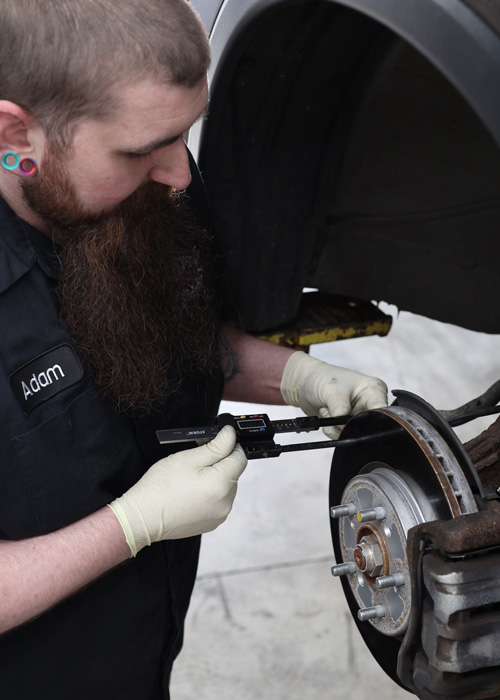
System
The cooling system works by removing heat from the engine and transferring it to the outside air. This is done by circulating antifreeze through passages within the engine block, engine heads, and the radiator located at the front of the vehicle. The radiator helps cool the engine’s antifreeze by allowing air to flow over it as the vehicle moves. The cooling system also includes a thermostat that regulates the engine’s operating temperature, a water pump that circulates the coolant through the engine and radiator, and a fan that helps cool the radiator when the vehicle is not moving.
The cooling system in a vehicle is an important part of ensuring a reliable and safe driving experience, particularly in extreme weather conditions. Regular maintenance, including checking and replacing the coolant and inspecting hoses and belts can help keep the system running smoothly and prevent costly repairs.
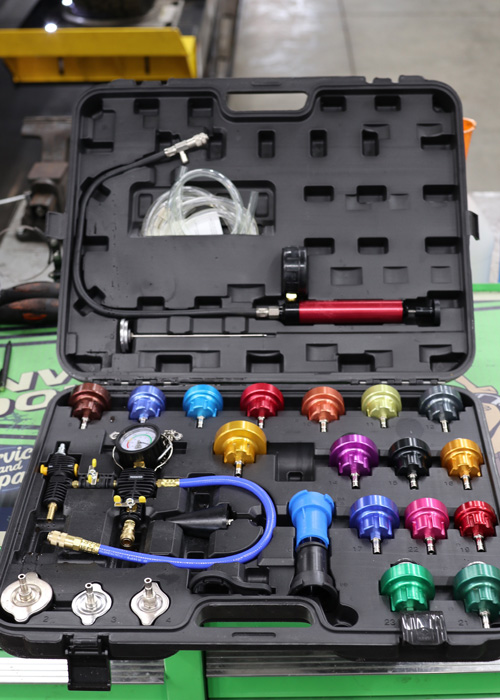
A vehicle’s electrical system is responsible for providing electrical power to various components and systems within the vehicle. Proper maintenance and repair of a vehicle’s electrical system is essential for ensuring the vehicle’s safe and reliable operation.
Some common electrical services include, but are not limited to:
-
Battery
-
Alternator
-
Starter
-
Ignition switch
-
Wiring
-
Fuses and relays
-
Exterior and interior lighting
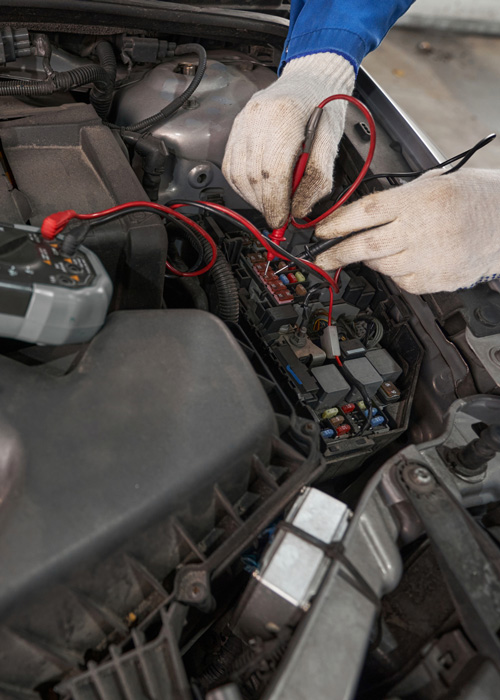
System
The exhaust system is an important component of a vehicle that helps to regulate emissions and maintain the efficiency of the engine. The exhaust system consists of many components, including but not limited to the manifolds, headers, catalytic converter, muffler, and the piping used to connect each component.
Some common services include, but are not limited to:
-
Inspection
-
Repair
-
Replacement
-
Aftermarket upgrades
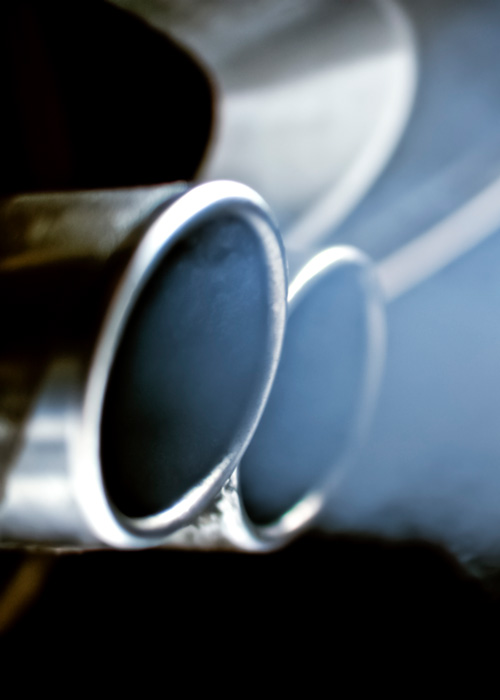
System
The fuel system is responsible for delivering fuel from the gas tank to the engine, where it is mixed with air and ignited to power the vehicle. Components of the fuel system include but are not limited to the fuel tank, fuel pump, fuel lines, fuel filter, and carburetor or fuel injectors. Proper maintenance of the fuel system is crucial for the optimal performance of the vehicle, as well as for fuel efficiency and reduced emissions.
Some common services include, but are not limited to:
-
Inspection of fuel lines for leaks or damage
-
Fuel line replacement or repair
-
Fuel filter replacement
-
Fuel injector cleaning or replacement
-
Fuel system flush
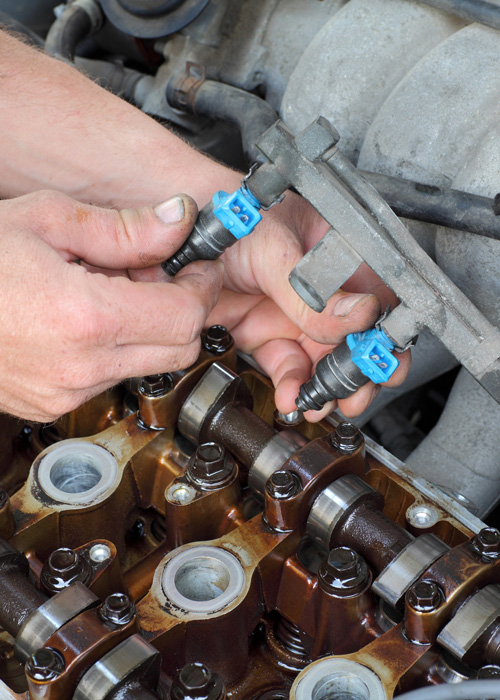
Conditioning
The heating system in a vehicle uses the engine’s coolant to warm up the passenger compartment. A heater core located inside the dashboard is responsible for transferring heat from the engine coolant into the cabin by using a blower motor to circulate air through it.
The air conditioning system in a vehicle uses a refrigerant to cool down the passenger compartment. The refrigerant flows through a series of components, including a compressor, condenser, and evaporator. As the air is cooled, a blower motor circulates the cooled air through the cabin.
Your vehicle’s heating and air conditioning are essential components in maintaining a comfortable driving experience. Regular maintenance and inspections can help keep the system running smoothly and prevent costly repairs.
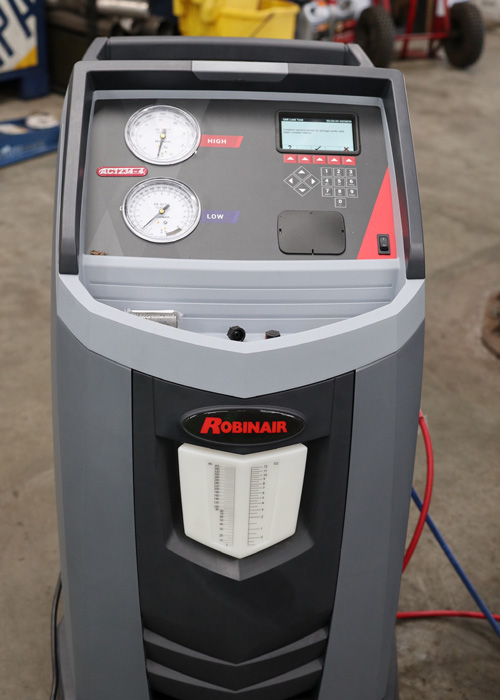
Suspension
Steering and suspension are two crucial components of a vehicle’s chassis system that work together to ensure safe and comfortable driving.
The steering system is responsible for controlling the direction of the vehicle by allowing the driver to turn the wheels. The steering system consists of several components, including but not limited to the steering wheel, steering column, steering gearbox, rack and pinion, and power steering pump. The steering system can be either manual or power-assisted, with power-assisted steering being more common in modern vehicles.
The suspension system is responsible for providing a smooth and comfortable ride by absorbing shocks and vibrations from the road and stabilizing the vehicle through turns. The suspension system consists of several components, including but not limited to springs, shocks, struts, control arms, sway bars, tie rods, and leaf springs.
Together, the steering and suspension systems work to keep the vehicle stable, prevent excessive body roll, and maintain proper alignment between the wheels and the road. Proper maintenance and regular inspections of these systems are crucial for ensuring safe and comfortable driving.
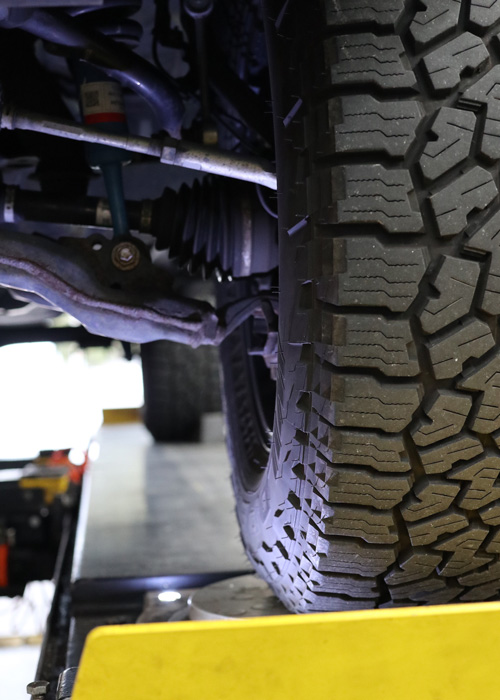
The transmission is responsible for transmitting power from the engine to the wheels, allowing the vehicle to move. It is important to have your vehicle’s transmission system serviced regularly to help prevent problems and keep your vehicle running smoothly. If you’re experiencing any issues with your vehicle’s transmission, it is best to have it inspected and repaired by a qualified technician.
Some common transmission services include, but are not limited to:
-
Transmission fluid change
-
Transmission fluid flush
-
Transmission repair
-
Transmission replacement
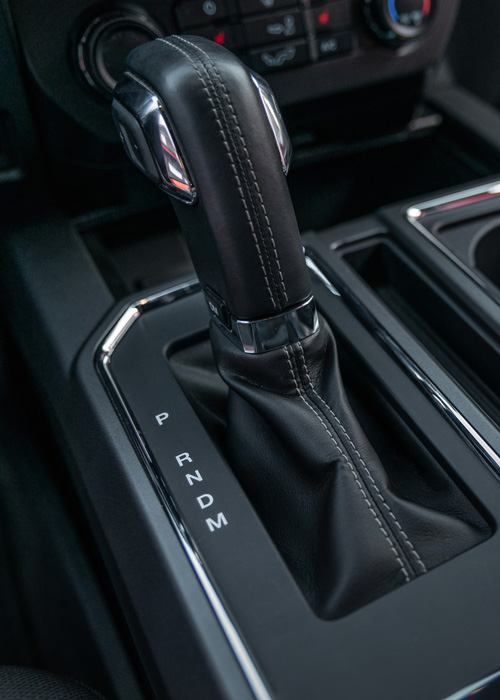
Highest Quality Service

Loaner Vehicles
Available

Night Drop
Off

Competitive
Pricing

Manufacturer
Recommended Service


